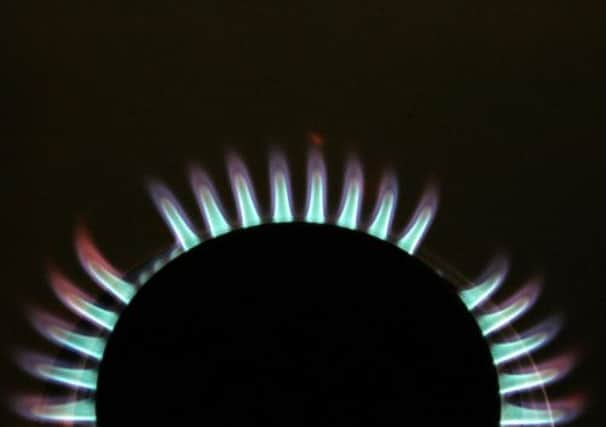Jane Bradley: There’s always someone worse off


In recent weeks, utility firms have hiked their bills by between 8.2 and 10.4 per cent. The National Audit Office this week warned that these above-inflation rises could go on for 17 years. Consumers have been rightfully angry, calling for the heads of the utility firm bosses and demanding that they explain where these inflated charges have come from.
The major power companies blame rising wholesale prices, but smaller rivals have argued that the major electricity providers who also generate power are actually selling it back to themselves at an inflated price. Tomayto, tomato. All we consumers care about is that our bills are going up.
Advertisement
Hide AdAdvertisement
Hide AdThe fact that the heads of the “Big Six” energy companies are now less likely to be invited to the nation’s dinner parties than Fred Goodwin speaks volumes.
However, I have a surprise for you: In Britain, we actually have the seventh-lowest electricity costs in Europe and the second- lowest gas prices. Only the lucky citizens of Luxembourg actually fork out less than we do per unit of gas.
I told you you’d be surprised.
So, while our bills are rocketing at a faster pace than our European counterparts, they are still not actually as high, pro-rata, according to the Household Energy Price Index for Europe report.
However, we still pay out more in energy per head than most Europeans. And therein lies the rub. For, while Erik in Stockholm is happy to survive the winter by throwing on an extra Christmas jumper and keeping his circulation going through a combination of saunas and freezing cold ice baths, Rab in Penicuik cranks up the thermostat, thus cranking up his bills.
The government is trying to convince us to use less energy to reduce the amount we pay. So are the utility companies, although perhaps through gritted teeth.
But in fact, when it comes to bills, we are a fairly lucky lot, overall. For the past few years, I have paid £5 a month for my broadband access. Granted, it wasn’t the most reliable connection in the world. Trying to stream anything with the kitchen door shut was nothing short of impossible and I often watched iPlayer perched on the hall floor with the laptop cable stretched as far as it would go. But it was still £5. Less than the cost of a couple of pints. Less than my weekly coffee allowance.
Recently, we decided to push the boat out and upgrade, guaranteeing us a steady internet connection on which to get our nightly West Wing fix. Now we pay the princely sum of £30 a month – for a decent connection, all-inclusive calls on our landline phone, enough remote storage for all of our photos and access to a new internet sports channel which shows some of the Premiership games. So I’m told.
I felt like we were really treating ourselves.
But a recent report showed that compared to our counterparts across the Atlantic, we are blessed. In the US, apparently, a basic broadband connection can cost up to $99 a month. That’s about £61. Definitely much more than my weekly coffee allowance.
Advertisement
Hide AdAdvertisement
Hide AdA quick poll of my friends Stateside found that not many people actually pay quite as much as the billed $99 charge, but quite a few of them paid substantially more than is typical in the UK.
Some were forced to take out contracts for landline phones they neither wanted nor needed, just to keep the cost of their internet connection at something like an affordable level.
A Polish friend tells me that in his home country, despite far lower wages than in the UK and a comparatively slow internet speed, a typical broadband package costs a few pounds more. That’s not to say that consumers should not fight back against rising costs – or at least bring the bill chiefs to account and make sure we are paying for what they say we are. We should. We should also do everything we can to find the cheapest price – be that by switching provider or locking them into a fixed rate price structure asap.
All I am saying, is that when that fat utility bill plops on to your mat in a few weeks, try to remember we could have it a whole lot worse.